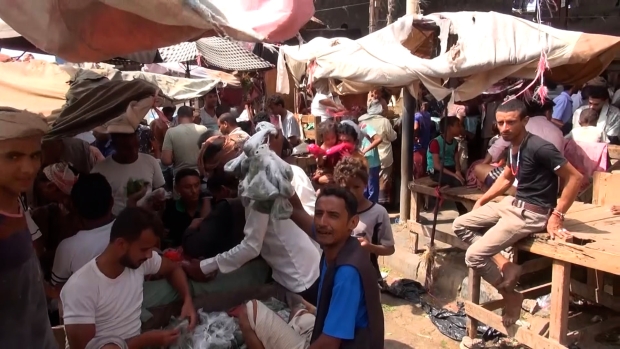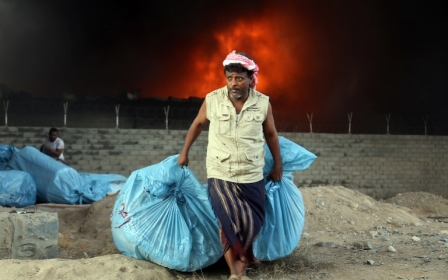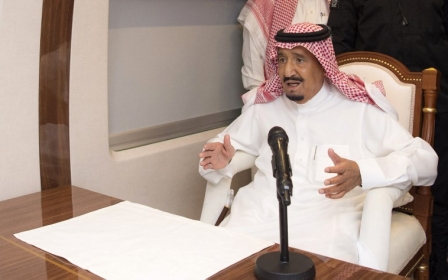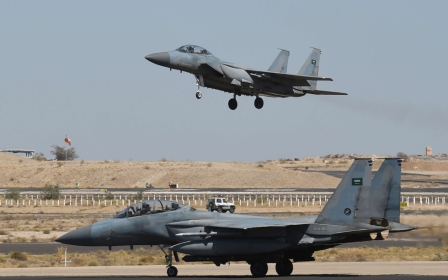Yemen war: 150 killed in battle for Hodeidah as civilians caught in crossfire
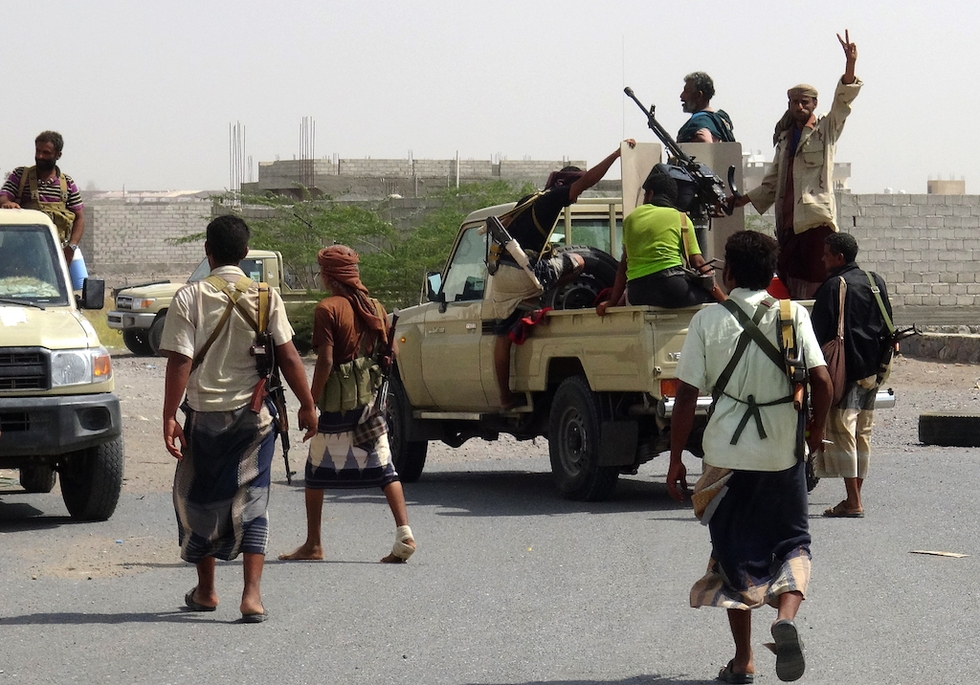
At least 150 people have been killed in 24 hours of clashes in Yemen's Hodeidah, medics and military sources said on Monday, as international pressure mounted for a ceasefire in the vital port city.
Government loyalists, supported by a Saudi-led coalition, are fighting to oust the Iranian-aligned Houthi rebels from the Red Sea city, whose docks are a lifeline to 14 million Yemenis at risk of starvation.
It is better to stay in my house waiting for death than to leave amid battles
- Mohammed Hadi, Hodeidah resident
"If the port at Hodeidah is destroyed, that could create an absolutely catastrophic situation," UN Secretary-General Antonio Guterres warned on Monday.
"The fighting must stop, a political debate must begin, and we must prepare a massive humanitarian response to avoid the worst next year," he said.
Government forces, led on the ground by Emirati-backed troops, have made their way into Hodeidah after 11 days of clashes, reaching residential neighbourhoods in the east on Sunday and sparking fears of street fights that would further endanger civilians trapped in the city.
A source in the pro-government coalition said the Houthis had pushed back a large-scale assault aimed at moving towards the port.
Residents and government military sources have reported rebel snipers stationed on rooftops in civilian streets in eastern Hodeidah, a few kilometres from the port on the western edge of the city.
Many residents who have remained in the 600,000-strong city during the offensive that began in June have told Middle East Eye that they are stuck in their homes, unable to flee as street fighting continues outside and living in fear.
"It is better to stay in my house waiting for death than to leave amid battles," Mohammed Hadi, a resident in the city's Ghulail neighbourhood, told MEE.
The Hodeidah offensive has sparked international outcry unprecedented in nearly four years of conflict between the Houthis and the Saudi-backed government.
US Secretary of State Mike Pompeo on Sunday urged Saudi Crown Prince Mohammed bin Salman, a major ally of Washington, to engage in peace talks.
'Incalculable human cost'
As the fighting continues, British Foreign Secretary Jeremy Hunt will visit Saudi Arabia on Monday, where he will press King Salman and the crown prince, Mohammed bin Salman, to support UN efforts to end the conflict, the Foreign Office said.
Both the United States and Britain are major suppliers of arms to Saudi Arabia. An MEE analysis has found that in the first two years of the war, European countries approved the sale of weapons worth $86.7bn, more than 55 times what the same countries have given in humanitarian aid to Yemen during the course of the war.
Hunt will also meet senior officials from Yemen and will travel on for meetings in the United Arab Emirates, a key pillar of the Saudi-led coalition supporting the Yemeni government.
"The human cost of war in Yemen is incalculable," Hunt said ahead of his trip. "The only solution is now a political decision to set aside arms and pursue peace."
Aid groups fear for the safety of Hodeidah's civilians and for millions of others dependent on its port for food and humanitarian aid in the impoverished country.
A military official in Hodeidah on Monday confirmed seven civilians had died, without giving further details.
Medics in hospitals across Hodeidah province reported 111 rebels and 32 loyalist fighters killed over Sunday night, according to a tally by AFP.
The rebels have begun to evacuate their wounded to Sanaa, the capital, which the Houthis seized during a 2014 takeover that included a string of ports on Yemen's coastline.
Saudi Arabia and its allies intervened in the Yemeni government's fight against the Houthis in March 2015, triggering what the UN now calls the world's worst humanitarian crisis.
Nearly 600 people have been killed since clashes erupted in Hodeidah on 1 November, ending a temporary suspension in a government offensive to take the city that began in June.
International pressure
The coalition has come under intense international pressure to end the conflict in Yemen, particularly following the killing of Saudi journalist Jamal Khashoggi.
Khashoggi, a Washington Post columnist killed in his country's consulate in Istanbul on 2 October, was a critic of the war, spearheaded by the crown prince who became defence minister in 2015.
Multiple countries, including Germany and Norway, have announced the suspension of arms sales to Saudi Arabia after Khashoggi's killing.
The United Nations' Yemen envoy, Martin Griffiths, is pushing for peace talks between the Houthis and the government by the end of the year.
The United States, which for years provided military training and aerial refuelling for the Saudi-led coalition, on Saturday announced it would end its in-flight refuelling support for the alliance.
However, a Yahoo news report has revealed that earlier this year, the US launched a covert operation - called "Yukon Journey" - in support of the coalition's military operations in Yemen.
On an unclassified website used by the Defense Department, a document lists the operation as one overseen by US Central Command, but does not describe what type of support is provided to the Saudi-led coalition.
Pentagon and Defense Department officials declined to give Yahoo news further details, saying the operation was classified.
The coalition has been blacklisted by the United Nations for the killing and maiming of children, particularly in air raids on rebel-held territory.
The Saudi-led alliance accuses Iran of smuggling arms to the Houthis through Hodeidah port. Tehran denies the charges.
The World Health Organisation estimates nearly 10,000 people have been killed in the Yemen war since 2015.
But rights groups believe the toll may be five times as high.
In a report released in October, Armed Conflict Location and Event Data Project - an independent conflict research group - estimated that at least 56,000 have been killed since January 2016 which does not include those who have died from hunger and disease.
New MEE newsletter: Jerusalem Dispatch
Sign up to get the latest insights and analysis on Israel-Palestine, alongside Turkey Unpacked and other MEE newsletters
Middle East Eye delivers independent and unrivalled coverage and analysis of the Middle East, North Africa and beyond. To learn more about republishing this content and the associated fees, please fill out this form. More about MEE can be found here.


